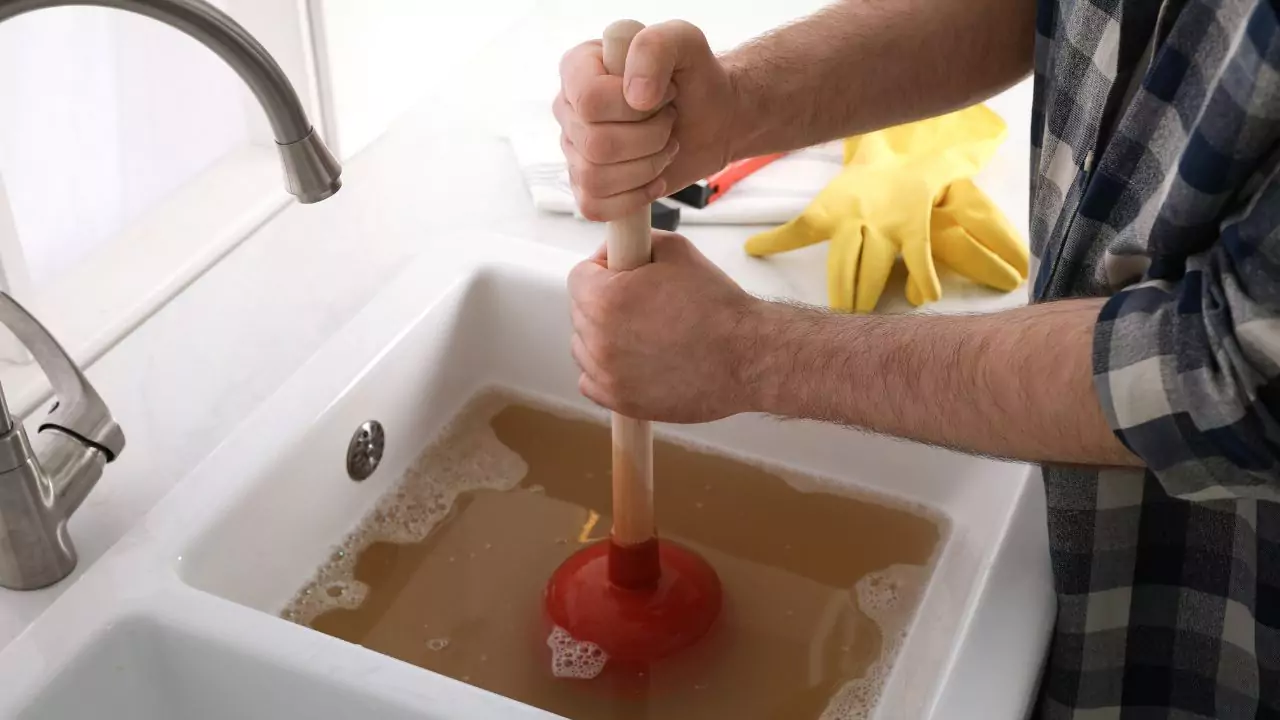Home insurance typically does not cover blocked drains as they are considered a result of general maintenance rather than sudden accidental damage. Homeowners are usually responsible for drains within their property boundaries, while the sewerage company is responsible for lateral drains outside these boundaries and sewers.
Adding coverage for sewage backup may offer protection against related damages. It’s crucial to understand the specific terms of your policy and consider additional coverage if necessary.
How to Prevent Blocked Drains and Plumbing Issues?
- Regular maintenance: You should check your pipes and drains regularly for any signs of wear and tear, such as cracks, leaks, or corrosion. You should also clean them with a plunger or a chemical drain cleaner at least once a year to remove any debris or sediment that may cause blockages.
- Acting quickly when issues arise: If you notice any water leakage, slow drainage, or foul smell from your drains, you should act quickly to identify and fix the problem. Do not ignore minor issues as they may worsen over time and lead to more serious damage.
- Using technology and preventative measures: You can use various tools and devices to prevent or detect blocked drains before they become a problem. For example, you can install a water pressure gauge to monitor the water flow in your pipes or use a CCTV camera to inspect the condition of your drains remotely.
- Checking for leaks and keeping drains clear: You should also check for any leaks in your pipes or appliances that may cause water wastage or damage. You can use leak detection kits or hire a professional plumber to find and repair any leaks. Additionally, you should keep your drains clear by avoiding putting foreign objects such as hairpins, sanitary products, or grease down them.
Do you need to pay an excess fee if your house insurance covers blocked drains?
An excess fee is an amount that you have to pay towards the cost of repairing or replacing damaged property after making a claim on your house insurance policy.
The amount of excess that you have to pay depends on the type and extent of damage caused by the blocked drain. For example:
- If the blockage is caused by accidental damage due to negligence or carelessness (such as leaving food scraps in the sink), you may have to pay an excess fee ranging from £50 to £500.
- If the blockage is caused by wear and tear due to normal use (such as mineral deposits in the pipes), you may not have to pay an excess fee at all.
- If the blockage is caused by external factors such as vandalism or theft (such as someone breaking into your property), you may have to pay an excess fee depending on whether it was covered by your policy or not.
Are there any exclusions or limitations to the house insurance coverage for blocked drains?
Your house insurance policy may exclude some types of damage caused by blocked drains if they are considered preventable or avoidable. For example:
- If you could have prevented the blockage by taking reasonable care of your property (such as keeping it clean and tidy), then your insurer may refuse to pay for it.
- If you could have avoided the blockage by following proper maintenance procedures (such as flushing out clogs regularly), then your insurer may refuse to pay for it.
- If you could have detected the blockage earlier by using preventive measures (such as checking for leaks frequently), then your insurer may refuse to pay for it.
Can you claim for the damage caused by blocked drains on your house insurance policy?
Yes, if your house insurance policy covers blocked drains due to accidental damage due to negligence or carelessness (see above), then you can claim for the damage caused by them on your policy.
However, there are some conditions that apply:
- You must report any claims within 28 days of becoming aware of them.
- You must provide evidence of how much it costs to repair or replace damaged property (such as receipts from tradespeople).
- You must cooperate with your insurer’s investigation into how the blockage occurred (such as providing access codes).





